Et tu, Ana de Armas?
11/28 — 12/5 2024 . . . The Cuban American actress is dating the stepson of Cuba’s appointed "president." Cubans are livid—and disgusted over the lavish lifestyles of their rulers' children.

Hola y welcome.
Thanks for being here with me.
I hope your Sansgiving was as wonderful as ours. This year we were in Cuban America Mecca, Miami’s Little Havana. There’s nothing like a legit Cuban sanguich. You just can’t get those in New Hampshire.
Best of all was getting to hug Tío Andrés, Tía María and at least some of our Miami family. Tío is my father’s brother, the last of his generation, the remaining sibling. He’s fighting cancer but doing well, a living example of one of my favorite Spanish sayings: a mal tiempo, buena cara (to a bad time, a good face).
This week’s Cuban Treat of the Week, at the end of the post, is a series of pics from our trip, including a clip of us taking a family photo with the Miami Cubans but actually taking a video instead. Muy típico.
In case you don’t get there, here’s a little Spanglish gem we found at Sanguich, in Little Havana. They make the absolute best Cuban sanguiches, so make sure you drop in next time you’re near Calle Ocho.
Now, about Cuba news . . .The underground scene was rippling with scoops this week, some of them light, some dark, some wonky but revealing. Tough to pick, but here are your three scoops for this week.
Uno (Light)—Cubans are up in arms about Ana de Armas sleeping with the enemy AND joining the scions of Cuba’s leaders in their ostentatious lifestyle. (Uno ends on a difficult story—to keep us honest about this work.
Dos (Dark)—Cuba’s national power grid collapsed again Wednesday, the 3rd collapse in under two months. Rationing energy and rolling blackouts aren’t working.
Tres (Wonky but illuminating)—An extremely rare document leak from inside Cuba shows Cuba lied about the true nature of a company it created to avoid the US ban on American business transactions with companies owned by Cuba’s military conglomerate. I told you it was wonky.
More deets, as the kids say, below.
Hasta la semana que viene,
Ana
Uno
Cubans are up in arms about A-List Cuban American actress Ana de Armas “sleeping with the enemy.”
The scandal is rekindling anger about the opulent lifestyle of Cuba’s
"revolutionary” leaders—especially the scions of the Castro family, who can’t stop posing and posting on social media.
Ana de Armas’s just-revealed relationship with Manuel Anido Cuesta, the stepson of Cuba’s appointed “president,” triggered Cuban outrage in and outside of Cuba last week.
Cubans had been dismayed with the actress for her silence about the plight of political prisoners and Cubans’ suffering during her visits to the island. On one trip, de Armas was photographed at extravagant parties, celebrating with VIPs, just as 11J protestors were being tried and many families were in anguish.
Now the actress is dating the stepson of Cuba’s “president,” Miguel Díaz Canel, and mingling with the political elites whom many Cubans blame for their misery and repression.
The scandal, and others triggered by boastful posts by the adult children of Cuba’s leaders, reveals the parallel world where Cuba’s ruling class lives, one that bears no resemblance to the average Cuban’s—nor to the revolutionary ideals the regime claims to honor and defend.
Hola magazine’s recent photos of de Armas and Cuesta, wearing designer clothes and strolling around a tony Madrid neighborhood after a dinner at a posh restaurant, are a painful contrast to the reality that average Cubans face each day.
The timing for the photos couldn’t be worse. Many Cubans say this is their darkest hour—with family members leaving the country each day, crumbling buildings, mountains of trash everywhere, fuel, food, water, and electricity shortages, 1000+ political prisoners, militarized streets, and repression everywhere.
It’s no wonder Cubans took the actress’s choice of men as an insult, a betrayal. They’ve been lighting up Instagram, Facebook, and Twitter, among others, with angry comments.
Miami comic duo Los Pichy Boys joined the commotion early on Facebook. “You could be with any man, and you go and get mixed up with this family . . . This is why you’ve never spoken nor will ever speak in favor or your people.”
The photos of the couple triggered new criticism about the luxurious lifestyles of Cuba’s leaders’ children and grandchildren, especially the scions of the Castro family. Some are vainglorious social media fans, showing off on private jets, lounging on yachts, driving Mercedes, and smoking expensive cigars in opulent restaurants around the world.
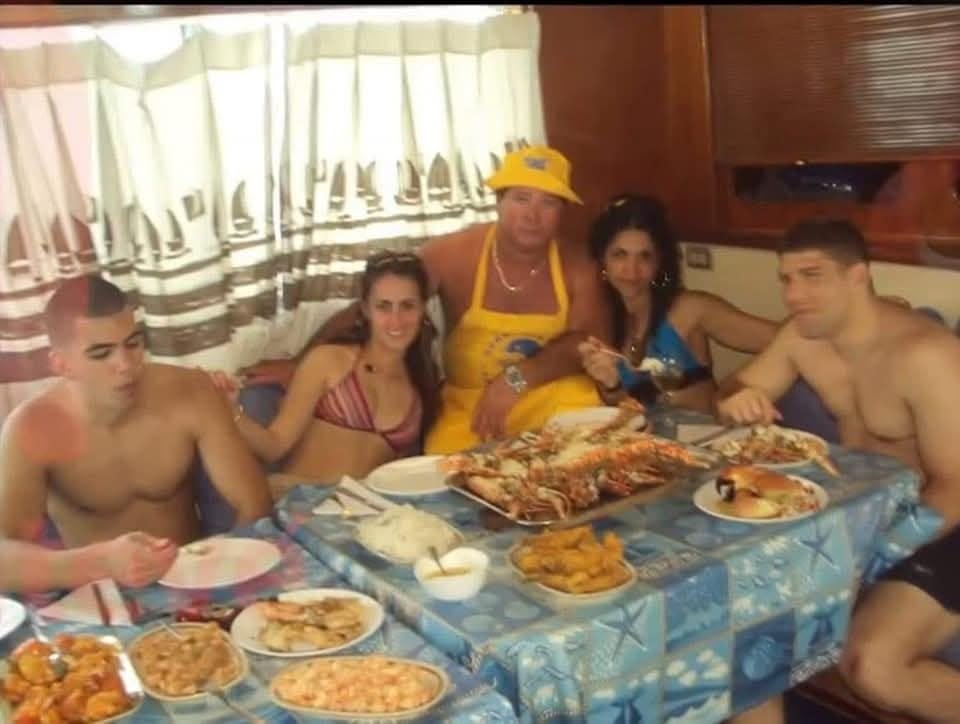
Images of the political elites at their frequent feasts seem to draw the most stinging rebukes from hungry Cubans and their families abroad. Those tables laden with lobsters, beef, pastas, wine—all impossible to find items for most Cubans—are too much to take for Cubans struggling to put even bread on their tables.
This week, Fidel Castro’s grandson, Sandro Castro, announced a party like no other would take place on Thursday at his bar EFE in Havana. It’s his birthday, after all. Sandro, it turns out, landed one of the few licenses for a private sector enterprise. He must know someone.
His bar is well stocked, based on reports and images uploaded to his accounts. No scarcity of products there. And the bar seems to be unaffected by the severe water and power outages that most Havana residents confront each day.

Sandro’s invitation asks guests to wear white. They are promised the chance to mingle with elite artists and other VIPs. A welcome cocktail will be served and a Tequila Rose shot offered to the first 20 women who arrive. Sparkling wine will be free for all. Note: The cheapest drinks at Sandro’s bar cost the same as the minimum Cuban monthly salary (2100 pesos).
After receiving scathing criticism, Sandro filmed a reply—apparently from the back seat of a luxury car—describing himself as a young revolutionary, a humble person, following the law, celebrating his birthday just like anyone else, as he likes. He said we were all welcome. As long as there’s room.
Not far from Sandro’s bar is Combinado del Este, a notorious maximum-security prison, where an unknown number of political prisoners are held alongside common criminals. Last Saturday the family of one of them, 11J political prisoner Jesús Guillén Espulgas, arrived to collect his body. The guards said he’d tried to escape. They’d captured him and returned him to his cell. They claim he hung himself with bed sheets.
Guillén’s family says he was murdered, that the marks on body prove he was beaten, and the ones on his neck could not have come from a sheet, as the guards said. Instead, they appeared to be from a belt, a guard’s belt, since prisoners aren’t permitted to wear them.
Human rights groups Justicia 11J, and Cuba Decide and UNPACU (pro-democracy groups that Guillén belonged to) agree with the family. “We denounce with profound indignation, the vile murder of Manuel . . . he was beaten to death by the Castrista regime’s sicarios,” the groups said in a joint statement.
The thirty-year-old activist was serving a six year sentence for filming and sharing the anti-government protests of July 11th and 12th, 2021.
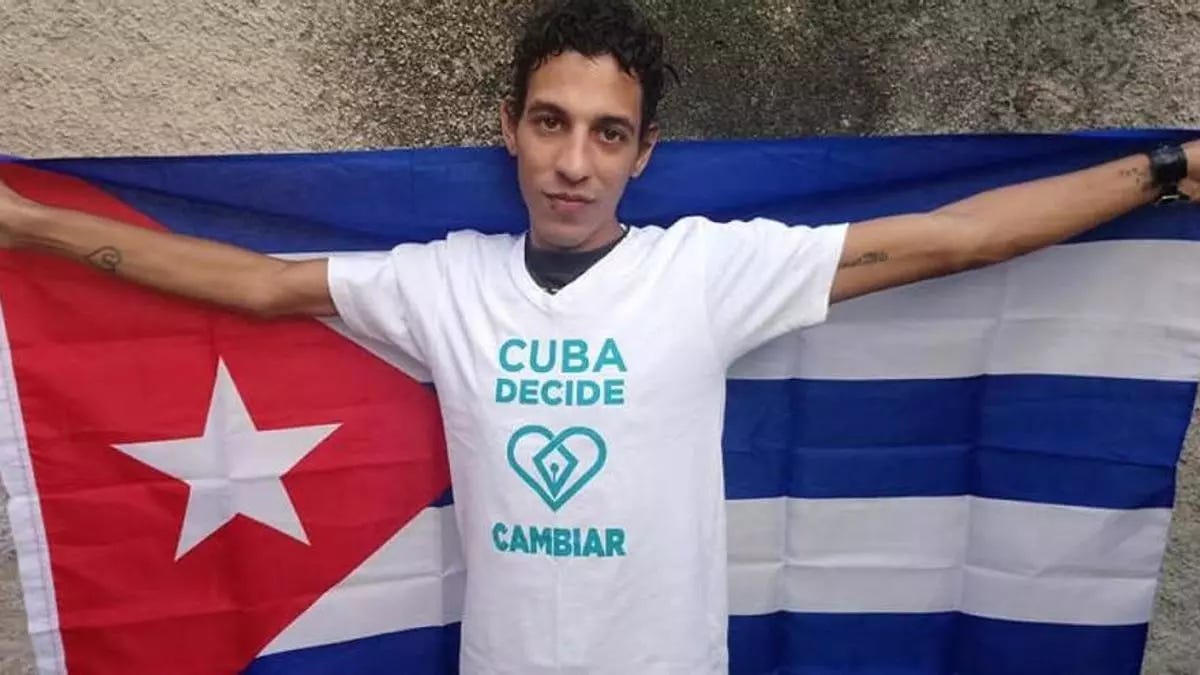
Sources: 14ymedio, Diario de Cuba, Facebook
Dos
Countrywide energy grid collapses again, 3rd time in month under two months
At 2:08 am Wednesday, Cuba’s national energy system failed, its third complete collapse in under two months. In a brief report, official outlet Cubadebate said it was the failure of the country’s main plant, Antonio Guiteras, that caused the system-wide outage.

Cubans awoke to non-working appliances, rice cookers, fans, lamps. The food they’d worked so hard to find and purchase, stored last night in old but working refrigerators, was warming and would soon spoil. The electric pumps most households depend on for their water supply would be silent, their taps dry.
Authorities promised that this time, the recovery would be faster, because they weren’t dealing with an impending hurricane, as in recent outages.
But no one believes them, said Yoani Sanchéz in her Wednesday podcast. “The problem is in the DNA of this political and economic system, imposed on us and maintained through terror, repression, violence, threats. Now more will leave the country, even those who never thought they would.”
All schools and non-essential businesses will remain closed until the system is reconnected.
Those who managed to connect to the internet were cynical about the government’s announcements. “And the misery will continue until what is disconnected is the bad management of this country,” one commentor said.
The Fin de Año (Year End) celebrations that Cubans hold dear, that they anticipate and plan for with excitement through December, will have to be patched together again this year.
A note: Late Wednesday, Sandro Castro tweeted that his party is still on. Apparently, his bar was spared during the system-wide collapse. Some guys have all the luck.
Source: 14ymedio
Tres
Cuba Lied to US Treasury to get millions from Cuban American remittances, skirting US sanctions and enriching the military’s businesses
Summarized and condensed from two recent reports by The Miami Herald’s Nora Gámez Torres, 1, 2.
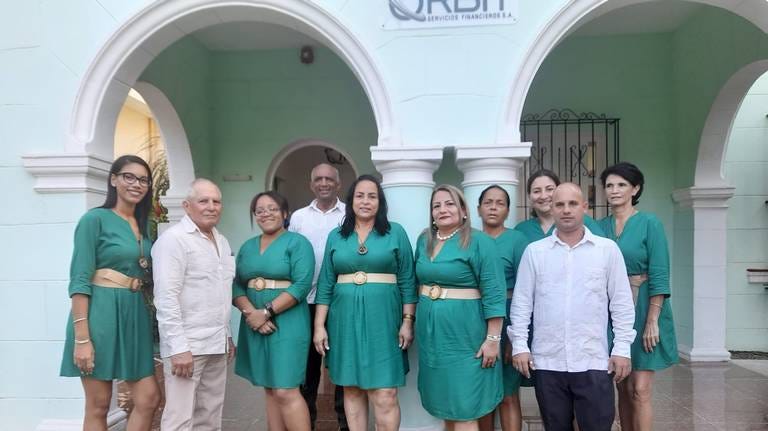
The Cuban regime has been averting US sanctions by hiding the true nature of the company that handles remittances sent by Cuban Americans to relatives on the island, according to a Miami Herald investigation.
The Trump administration imposed the sanctions in 2020 to prevent the Cuban military from profiting from its total control of Cuba’s remittances market. The Biden Administration maintained the sanctions, which banned business transactions with companies owned by the Cuban military. The sanctions were aimed at punishing the Cuban regime for its human rights violations and its support of Venezuelan dictator Nicolás Maduro. The sanctions were also meant to help redirect hard currency toward Cuba’s private sector and keep it out of the military’s vast business holdings.
The Herald’s investigation focused on leaked documents from inside Cuba—an extremely rare event—that reveal that the sanctions achieved their goal. Remittances decreased by 67% in 2021 and have “never” recovered. The military went from controlling $800 million in remittances in 2019 to under $35 million in the first five months of 2024.
Experts estimate remittances from Cubans abroad are the second largest source of much-needed hard currency in Cuba. Including food, medicine, and basic consumer goods, remittances total about $2 billion per year. Cubans rely heavily on remittances to survive, especially now, during what many see as the worst economic crisis of the post-revolution.
Cuba’s military-run conglomerate, GAESA, which controls tourism and an estimated 70% of the economy, has profited for the last 20 years from remittance processing, not only by taking a cut of each transaction but because it keeps the dollars and pays recipients in pesos at the official exchange rate of 24 pesos to $1. Note: The black market exchange rate hovers around 320 pesos to $1). GAESA’s subsidiary, Fincimex, was the only entity permitted to process remittance transfers in Cuba.
The document shows that the Cuban military created a new company, Orbit, SA, to avoid the 2020 US sanctions on remittances. When it presented Orbit to the US Treasury Department in 2022 as a non-military entity, the Treasury approved the company for remittance processing. Western Union opened up again in Cuba and remittances began flowing again, but not at the same rate.
In the meantime, Cubans abroad had found a workaround to the sanctions, using mulas—mules—paid curriers who travel to Cuba to deliver money to their clients’ relatives. In more bad news for the military, Cubans abroad began using online companies to get food, medicine, and basic items directly to family in Cuba, rather than transferring remittances to their relatives. Note: Many experts worry that these, too, are companies under the hidden control of the regime and the military.
The workarounds benefit Cuban family members on both sides of the deal. The senders’ gifts hold their value, because dollars aren’t converted to pesos in Cuba. And the recipients get tangible goods without having to hunt them down in nearly empty marketplaces or risk purchasing them on the black market.
The leaked documents reveal that the military sees the struggling private sector’s need for dollars as a major problem, describing the sector as a “highjacking” dollars. To remedy the problem, the documents outline a plan to prohibit or limit Cuba’s private businesses from purchasing imports in dollars.
Last July the regime announced new restrictions on the private sector that achieve those goals. New limits were placed on the number of companies that can import foreign goods and require those co them to use to use only Cuban pesos for imports and only Cuban bank accounts for all business transactions.
The government continues its strict oversight of the private sector, even though Cubans are turning to private businesses rather than to state-run stores when shopping for basics. The private stores, if open and not shuttered by the government for some infraction, tend to have more and better quality goods. Cubans know they’ll pay sky-high prices, but the private sector is becoming their best alternative.
Ric Herrero, the executive director of the Cuba Study Group, a US group that supports Cuban private enterprise, told the Herald that “for the first itme, remittances are flowing mostly through the hands of private Cuban citizens, both in the US and on the island. The [Cuban] military has seen that as a threat, and that’s among the reasons the government has cracked down on the private sector.”






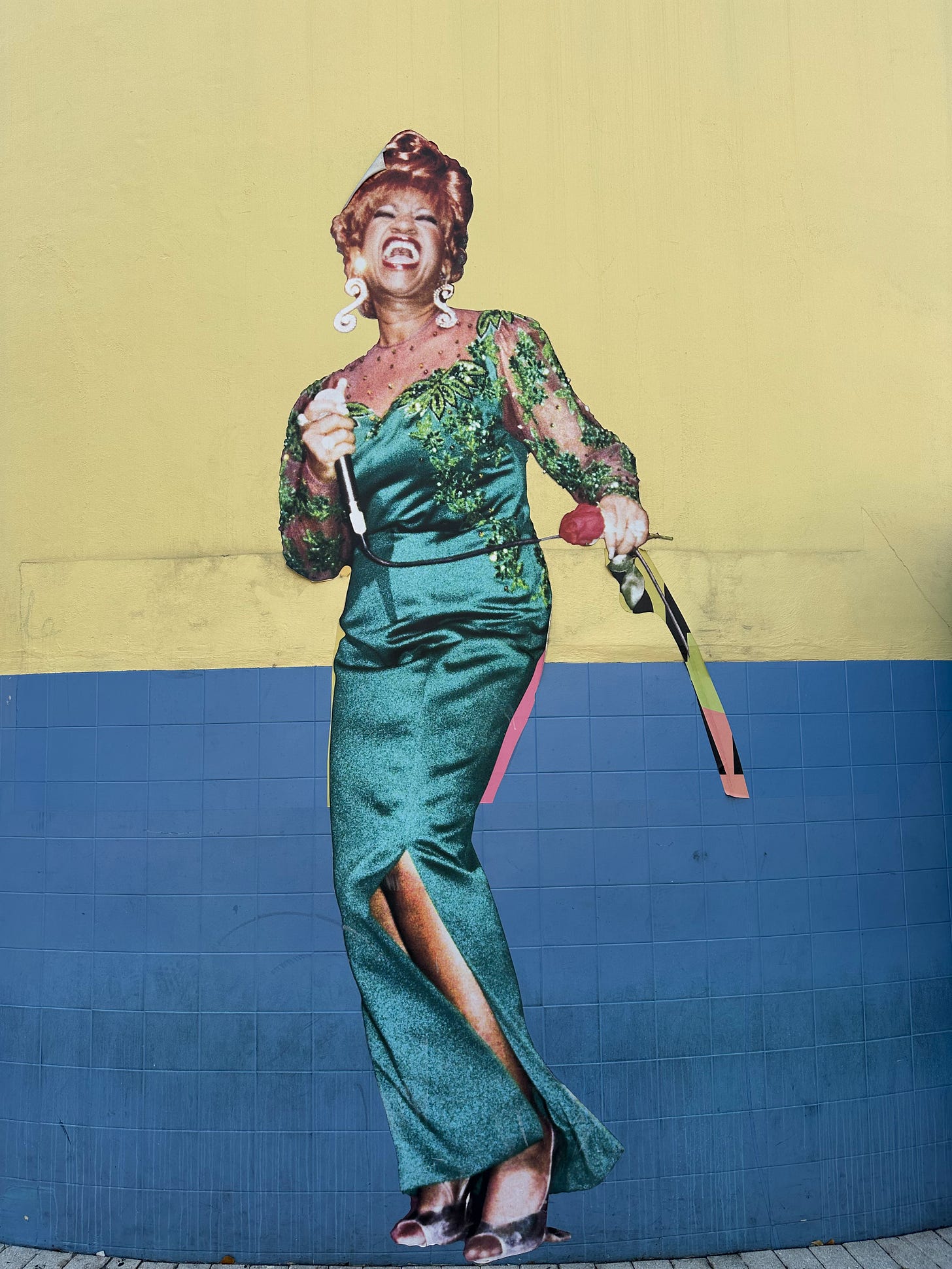
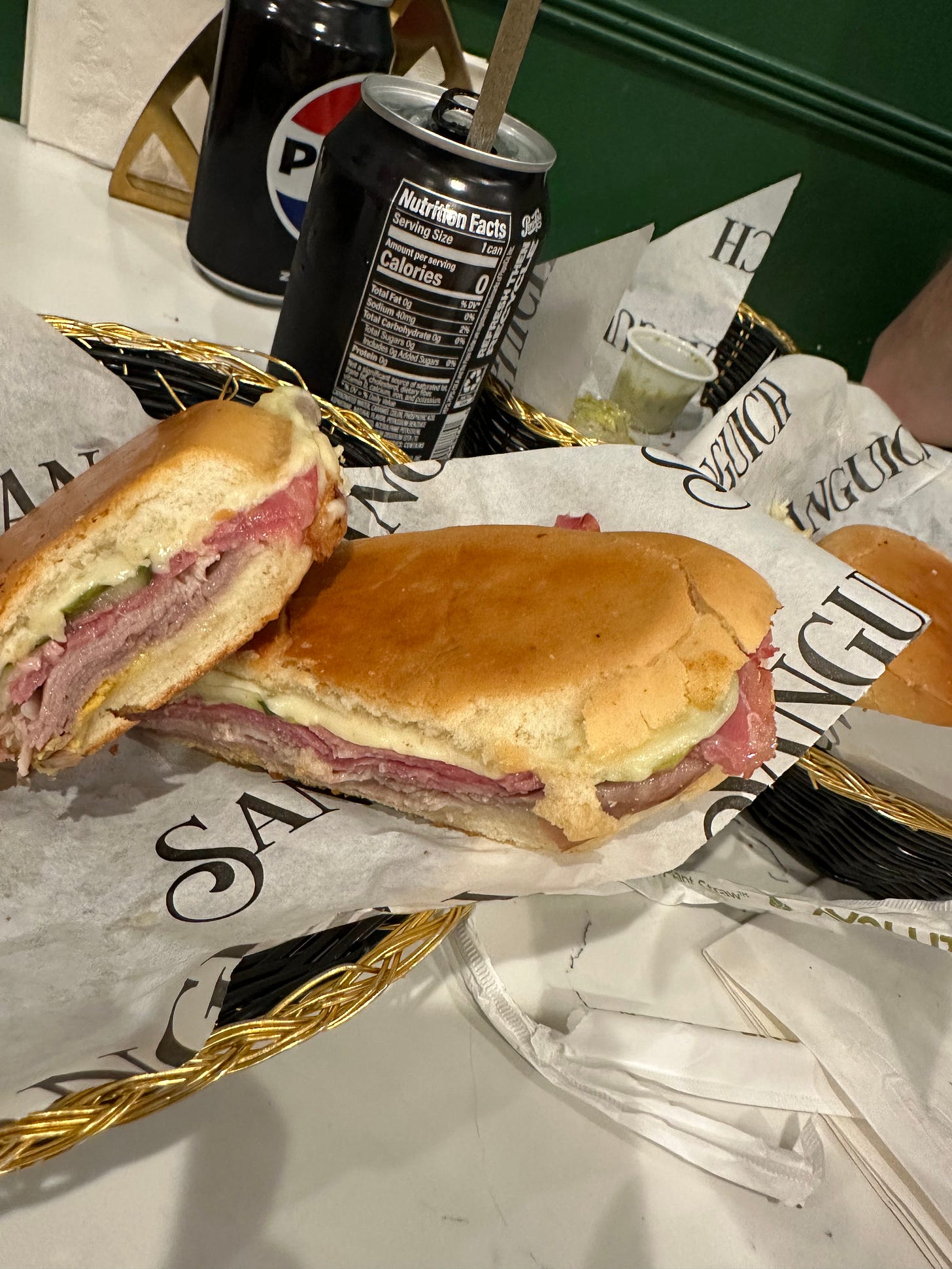
You bring Cuba to life!